Three Books is Ela Area Public Library’s podcast series where our hosts, Becca and Christen, chat about three popular/favorite books. This month is a two part special to celebrate Booksgiving! Part two features book recommendations and gift experiences for teen fiction and nonfiction, children's fiction and nonfiction, as well as bonus book themed gifts.
Introduction 0:00 to 0:25
What To Expect In Booksgiving Part 2 0:25 to 0:42
Teen Fiction 0:42 to 2:11
Teen Nonfiction Blurb 2:11 to 3:17
Back to Teen Fiction 3:17 to 7:18
Teen Nonfiction 7:18 to 8:25
3rd to 5th Grade Fiction 8:25 to 13:01
Children’s Nonfiction 13:01 to 15:53
Middle School and Up Fiction 15:53 to 16:24
Chapter Books 16:24 to 18:13
For Elephant and Piggie Fans 18:13 to 26:12
Poetry 26:12 to 27:17
Picture Books 27:17 to 33:16
Book Themed Gift Ideas 33:16 to 40:35
Conclusion 40:35 to 43:04
Young Adult
Diviners Series by Libba Bray
The Reckoners Series (Steelheart is Book 1) by Brandon Sanderson
Vincent and Theo: The Van Gogh Brothers by Deborah Heiligman
The Passion of Dolssa by Julie Berry
Every Heart a Doorway by Seanan McGuire
Hate U Give by Angie Thomas
Words in Deep Blue by Catherine Crowley
Alex, Approximately by Jenn Bennett
Theodore Gray - The Elements, Molecules and Reactions
3-5 Grade Fiction and Comics
HiLo by Judd Winick
Bone Series by Jeff Smith
Calvin and Hobbes by Bill Watterson
Pedro & Me by Judd Winick
Dog Man by Dav Pilkey
Captain Underpants Series by Dav Pilkey
The Big Sparkly Box of Unicorn Magic: Phoebe and Her Unicorn Box Set Volume 1-4 by Dana Simpson
Science Comics published by MacMillan
Science Comics: Rockets (Defying Gravity) by Anne Drozd and Jerzy Drozd
Star Wars: Absolutely Everything You Need to Know, Updated and Expanded by DK Books
LEGO DC Comics Superheroes Character Encyclopedia by DK Books
LEGO Batman: Visual Dictionary by DK Books
Batman Character Encyclopedia by DK Books
Fish Girl by Donna Jo Napoli and illustrated by David Wiesner
Beginning Chapter Books 1-2nd Grade
Princess Cora and the Crocodile by Laura Amy Schlitz
The Paper Bag Princess by Robert Munsch
Dory Fantasmagory by Abby Hanlon
Junie B Jones by Barbara Park
Ramona Quimby by Beverly Cleary
Clementine by Sara Pennypacker
Elephant and Piggie Series by Mo Willems
Ballet Cat by Bob Shea
Dance! Dance! Underpants! by Bob Shea
Narwhal Unicorn of the Sea by Ben Clanton
Super Narwhal and Jelly Jolt by Ben Clanton
Picture Books
Welcome: A Mo Willems Guide for New Arrivals
First Stories: A Fairytale Board Book Series, Illustrated by Dan Taylor
Sleep Tight Farm: A farm Prepares for Winter by Eugenie Doyle, Illustrated by Becca Stadtlander
Cat on the Bus by Aram Kim
When Green Becomes Tomatoes: Poems for All Seasons by Julie Fogliano
Du Iz Tak by Carson Ellis
Leave Me Alone! By Vera Brosgol
Bunny’s Book Club by Annie Silvestro
Cate’s Magic Garden by Betsey Coffeen and Samantha Smith
Bookish Gift Ideas
Ex Libris Board Game
StoryCubes
Paperback Board Game
Out of Print - website with delightful literary-themed goods
Ideal Bookshelf - pins, totes, mugs and prints. Bookshelves include things like “Jane Austen” or “Harry Potter” (US and UK), cookbooks, design, kids and more. Or request a custom bookshelf for the book lover in your life!
Book Box Subscriptions! - Owl Crate, Bookish Box --

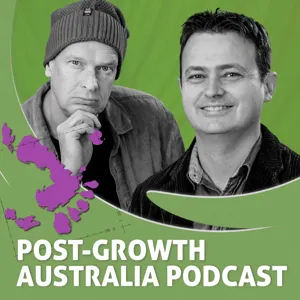
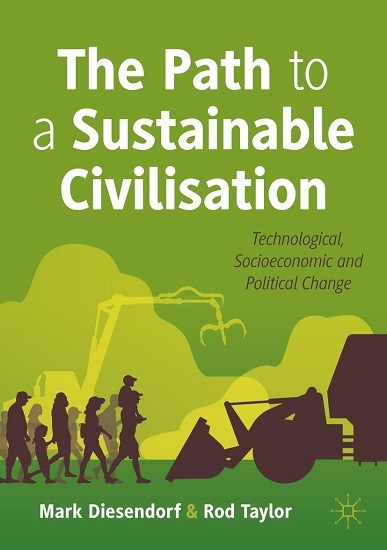 Dr Mark Diesendorf is Honorary Associate Professor in the Environment & Society Group, School of Humanities & Languages at UNSW Sydney. He is also Senior Editor for Energy of the international journal Global Sustainability. Originally trained as a physicist, he became a Principal Research Scientist in CSIRO, and then broadened out into interdisciplinary energy and sustainability research. From 1996 to 2001 he was Professor of Environmental Science and Founding Director of the Institute for Sustainable Futures at University of Technology Sydney.
Dr Mark Diesendorf is Honorary Associate Professor in the Environment & Society Group, School of Humanities & Languages at UNSW Sydney. He is also Senior Editor for Energy of the international journal Global Sustainability. Originally trained as a physicist, he became a Principal Research Scientist in CSIRO, and then broadened out into interdisciplinary energy and sustainability research. From 1996 to 2001 he was Professor of Environmental Science and Founding Director of the Institute for Sustainable Futures at University of Technology Sydney.
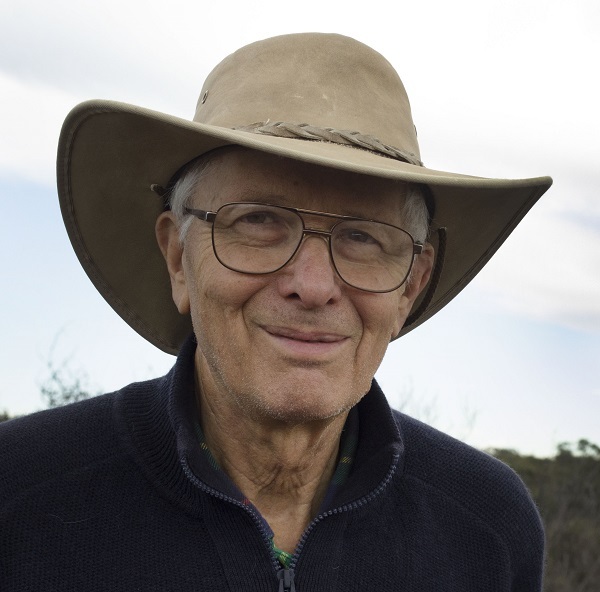 PGAP listeners will be familiar with many of the challenges and solutions raised by Mark, in this interview, that are expanded on within the very concise and easy to read pages of “The Path to a Sustainable Civilisation (https://sustainablecivilisation.com/)”. These include the mechanisms of state capture and how they undermine democracy, the critical role that population sustainability contributes toward any planned Degrowth transition and how planned Degrowth may be facilitated with the sensible application of Modern Monetary Theory (MMT).
MMT is a favourite topic on PGAP and we highly recommend listening to our episode: “MMT for Activism with Gabrielle Bond (https://pgap.fireside.fm/mmtlab)”. You may also recognise Mark's co-author, Rod Taylor, who also contributed to the book “Sustainability and the New Economics” with Steve Williams, whom PGAP interviewed last yea (https://pgap.fireside.fm/stevewilliams)r. Rod Taylor was also interviewed on PGAP for his own book “10 Journeys on a Fragile Planet (https://pgap.fireside.fm/rodtaylor).” We are certainly well read on this podcast!
PGAP is supported by Sustainable Population Australia (https://population.org.au/). All views and perspectives from our esteemed guests, including current and past legacies, are their own and do not always reflect the positions held by PGAP or SPA. Your PGAP co-hosts, Michael Bayliss (https://michaelbayliss.org/)and Mark Allen (https://holisticactivism.net/town-planning-rebellion-tpr/), have been very impressed by the amount of contact and feedback that we have been receiving from our listeners and supporters. Thank you so much! Let’s build this community. Rate and review this and other episodes of PGAP on Apple Podcast (https://podcasts.apple.com/au/podcast/post-growth-australia-podcast/id1522194099) or your favourite platform and feel free to share among your networks. Contact us (https://pgap.fireside.fm/contact) anytime with your feedback, thoughts and ideas.
As Mark Diesendorf is a very industrious generator of wisdom, we are honoured to share a large collection of his work below, followed by the time stamp for this episode. Happy further reading!
Mark’s website: https://research.unsw.edu.au/people/associate-professor-mark-diesendorf
Mark’s Interview with The Sustainable Hour Podcast (https://climatesafety.info/climaterevolution5/).
Mark and co-host Rod Taylor spoke at an online Australia Earth Law Alliance online event for Earth Laws month. The presentation may be seen at the AELA YouTube channel here (https://www.youtube.com/watch?v=K0yiZp5xDqw). Yin Paradies and John Seed, who also spoke during Earth Laws month, were discusssed during the introduction of this episode. These talks may be watched here (https://www.youtube.com/watch?v=bo4CXIboS1Q) and here (https://www.earthlaws.org.au/event/elm23-8sept-john-seed-patricia-fleming-the-work-that-reconnects/).
Mark wrote for The Conversation: Saving humanity: here’s a radical approach to building a sustainable and just society (https://theconversation.com/saving-humanity-heres-a-radical-approach-to-building-a-sustainable-and-just-society-205566)
New book: Mark Diesendorf & Rod Taylor (2023). The Path to a Sustainable Civilisation: Technological, Socioeconomic and Political Change. Palgrave Macmillan. eBook ISBN 978-981-99-0663-5; print ISBN 978-981-99-0662-8. See https://sustainablecivilisation.com/.
Order from https://link.springer.com/book/10.1007/978-981-99-0663-5
Latest papers
Mark Diesendorf & Steven Hail (2022). Funding of the energy transition by monetary sovereign countries. Energies, volume 15, paper number 5908. https://doi.org/10.3390/en15165908 (Can be downloaded free of charge)
Mark Diesendorf (2022). Scenarios for the rapid phase-out of fossil fuels in Australia in the absence of CO2 removal. Australasian Journal of Environmental Management https://doi.org/10.1080/14486563.2022.2108514
Mark Diesendorf (2022.) Scenarios for mitigating CO2 emissions from energy supply in the absence of CO2 removal. Climate Policy 22:882-896. https://doi.org/10.1080/14693062.2022.2061407
Mark Diesendorf, David Roser & Haydn Washington (2023). Analyzing the nuclear weapons proliferation risk posed by a mature fusion technology and economy. Energies 16:1123. https://doi.org/10.3390/en16031123 .
Time Stamp
0:00:00 - 0:11:18 Introduction
0:11:19 - 1:08:02 Interview with Mark Diesendorf
1:08:03 - 1:16:23 Outro
Special Guest: Dr Mark Diesendorf.
PGAP listeners will be familiar with many of the challenges and solutions raised by Mark, in this interview, that are expanded on within the very concise and easy to read pages of “The Path to a Sustainable Civilisation (https://sustainablecivilisation.com/)”. These include the mechanisms of state capture and how they undermine democracy, the critical role that population sustainability contributes toward any planned Degrowth transition and how planned Degrowth may be facilitated with the sensible application of Modern Monetary Theory (MMT).
MMT is a favourite topic on PGAP and we highly recommend listening to our episode: “MMT for Activism with Gabrielle Bond (https://pgap.fireside.fm/mmtlab)”. You may also recognise Mark's co-author, Rod Taylor, who also contributed to the book “Sustainability and the New Economics” with Steve Williams, whom PGAP interviewed last yea (https://pgap.fireside.fm/stevewilliams)r. Rod Taylor was also interviewed on PGAP for his own book “10 Journeys on a Fragile Planet (https://pgap.fireside.fm/rodtaylor).” We are certainly well read on this podcast!
PGAP is supported by Sustainable Population Australia (https://population.org.au/). All views and perspectives from our esteemed guests, including current and past legacies, are their own and do not always reflect the positions held by PGAP or SPA. Your PGAP co-hosts, Michael Bayliss (https://michaelbayliss.org/)and Mark Allen (https://holisticactivism.net/town-planning-rebellion-tpr/), have been very impressed by the amount of contact and feedback that we have been receiving from our listeners and supporters. Thank you so much! Let’s build this community. Rate and review this and other episodes of PGAP on Apple Podcast (https://podcasts.apple.com/au/podcast/post-growth-australia-podcast/id1522194099) or your favourite platform and feel free to share among your networks. Contact us (https://pgap.fireside.fm/contact) anytime with your feedback, thoughts and ideas.
As Mark Diesendorf is a very industrious generator of wisdom, we are honoured to share a large collection of his work below, followed by the time stamp for this episode. Happy further reading!
Mark’s website: https://research.unsw.edu.au/people/associate-professor-mark-diesendorf
Mark’s Interview with The Sustainable Hour Podcast (https://climatesafety.info/climaterevolution5/).
Mark and co-host Rod Taylor spoke at an online Australia Earth Law Alliance online event for Earth Laws month. The presentation may be seen at the AELA YouTube channel here (https://www.youtube.com/watch?v=K0yiZp5xDqw). Yin Paradies and John Seed, who also spoke during Earth Laws month, were discusssed during the introduction of this episode. These talks may be watched here (https://www.youtube.com/watch?v=bo4CXIboS1Q) and here (https://www.earthlaws.org.au/event/elm23-8sept-john-seed-patricia-fleming-the-work-that-reconnects/).
Mark wrote for The Conversation: Saving humanity: here’s a radical approach to building a sustainable and just society (https://theconversation.com/saving-humanity-heres-a-radical-approach-to-building-a-sustainable-and-just-society-205566)
New book: Mark Diesendorf & Rod Taylor (2023). The Path to a Sustainable Civilisation: Technological, Socioeconomic and Political Change. Palgrave Macmillan. eBook ISBN 978-981-99-0663-5; print ISBN 978-981-99-0662-8. See https://sustainablecivilisation.com/.
Order from https://link.springer.com/book/10.1007/978-981-99-0663-5
Latest papers
Mark Diesendorf & Steven Hail (2022). Funding of the energy transition by monetary sovereign countries. Energies, volume 15, paper number 5908. https://doi.org/10.3390/en15165908 (Can be downloaded free of charge)
Mark Diesendorf (2022). Scenarios for the rapid phase-out of fossil fuels in Australia in the absence of CO2 removal. Australasian Journal of Environmental Management https://doi.org/10.1080/14486563.2022.2108514
Mark Diesendorf (2022.) Scenarios for mitigating CO2 emissions from energy supply in the absence of CO2 removal. Climate Policy 22:882-896. https://doi.org/10.1080/14693062.2022.2061407
Mark Diesendorf, David Roser & Haydn Washington (2023). Analyzing the nuclear weapons proliferation risk posed by a mature fusion technology and economy. Energies 16:1123. https://doi.org/10.3390/en16031123 .
Time Stamp
0:00:00 - 0:11:18 Introduction
0:11:19 - 1:08:02 Interview with Mark Diesendorf
1:08:03 - 1:16:23 Outro
Special Guest: Dr Mark Diesendorf.


 Stephen Williams has a background in newspaper journalism and law. He began his journalism career at The Canberra Times in 2000 and subsequently specialised in environmental matters. His overarching interest is in designing sustainable societies. He believes mainstream economics can only provide a path to collapse. He is the co-editor of Sustainability and the New Economics: Synthesising Ecological Economics and Modern Monetary Theory (Springer, 2022).
Want to find out more about “Sustainability and the New Economics: Synthesising Ecological Economics and Modern Monetary Theory”, purchase your own copy or encourage your local library to stock up? Check out the link to the book here (https://link.springer.com/book/10.1007/978-3-030-78795-0)
Stephen Williams has a background in newspaper journalism and law. He began his journalism career at The Canberra Times in 2000 and subsequently specialised in environmental matters. His overarching interest is in designing sustainable societies. He believes mainstream economics can only provide a path to collapse. He is the co-editor of Sustainability and the New Economics: Synthesising Ecological Economics and Modern Monetary Theory (Springer, 2022).
Want to find out more about “Sustainability and the New Economics: Synthesising Ecological Economics and Modern Monetary Theory”, purchase your own copy or encourage your local library to stock up? Check out the link to the book here (https://link.springer.com/book/10.1007/978-3-030-78795-0)
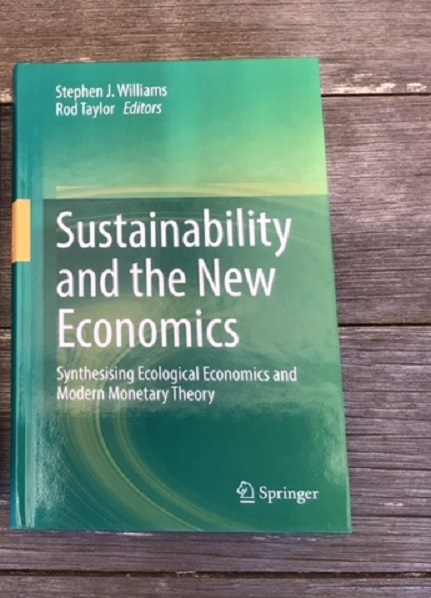 Want to find out more about some of the topics that Stephen brought up in the interview?
Modern Money Lab (courses, info): https://modernmoneylab.org.au
Herman Daly essay (with top-10 policies): https://www.greattransition.org/publication/economics-for-a-full-world
Did you like the economic focus of this episode? You might also like season 2 finale episode with Economic Reform Australia (https://pgap.fireside.fm/era) or The Economics of Arrival with Katherine Trebeck (https://pgap.fireside.fm/arrival). Season 1 has the budget special with unconventional economist Leith van Onselen (https://pgap.fireside.fm/budgetspecial), or reimagining an earth centred economy with Michelle Maloney. (https://pgap.fireside.fm/4)
SUPPORT PGAP! Rate and review us on Apple Podcast [here (https://podcasts.apple.com/au/podcast/post-growth-australia-podcast/id1522194099). Subscribe here. (https://pgap.fireside.fm/subscribe) Contact us here (https://pgap.fireside.fm/contact).
See you next episode? You wouldn't miss it for the world!
PGAP is made possible with the kind support of Sustainable Population Australia (https://population.org.au/).
If you would like to find out more about PGAP host Michael Bayliss, his website can be visited here (https://michaelbayliss.org/)
(All opinions, publications and positions held by PGAP guests do not necessarily reflect the positions held by PGAP).
Special Guest: Stephen Williams.
Want to find out more about some of the topics that Stephen brought up in the interview?
Modern Money Lab (courses, info): https://modernmoneylab.org.au
Herman Daly essay (with top-10 policies): https://www.greattransition.org/publication/economics-for-a-full-world
Did you like the economic focus of this episode? You might also like season 2 finale episode with Economic Reform Australia (https://pgap.fireside.fm/era) or The Economics of Arrival with Katherine Trebeck (https://pgap.fireside.fm/arrival). Season 1 has the budget special with unconventional economist Leith van Onselen (https://pgap.fireside.fm/budgetspecial), or reimagining an earth centred economy with Michelle Maloney. (https://pgap.fireside.fm/4)
SUPPORT PGAP! Rate and review us on Apple Podcast [here (https://podcasts.apple.com/au/podcast/post-growth-australia-podcast/id1522194099). Subscribe here. (https://pgap.fireside.fm/subscribe) Contact us here (https://pgap.fireside.fm/contact).
See you next episode? You wouldn't miss it for the world!
PGAP is made possible with the kind support of Sustainable Population Australia (https://population.org.au/).
If you would like to find out more about PGAP host Michael Bayliss, his website can be visited here (https://michaelbayliss.org/)
(All opinions, publications and positions held by PGAP guests do not necessarily reflect the positions held by PGAP).
Special Guest: Stephen Williams.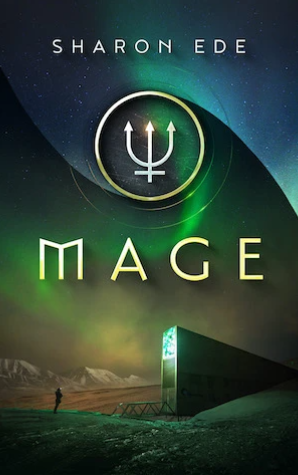 I have not come across much post-growth fiction in my travels. Up until a few years ago, the 1970s novel ‘Ecotopia (https://en.wikipedia.org/wiki/Ecotopia#Reception)’ provided a fascinating day-to-day account on how a more ecocentric society might operate on the west coast of the USA. Unfortunately, the book is starting to show its age somewhat in some of its social justice attitudes when looked back through the lens of the 21st century. A much more up to date fictional account of a post-growth society can be found in the 2013 novel ‘Entropia’ (https://au.permacultureprinciples.com/product/entropia/) by Dr Samuel Alexander. At a seminar at the 2019 Earth Ethics conference in Melbourne, Dr Alexander shared with attendees the importance for story-telling and art to carry the environmental message to the broader world.
In fact, the music project ‘Mortimer's Method’ (https://mortimersmethod.bandcamp.com/) took this idea of art as education a step further by putting samples from the audio-book of 'Entropia' to modern music. An extract of the track 'How Now Shall We Live' is provided at the end of the episode.
I have not come across much post-growth fiction in my travels. Up until a few years ago, the 1970s novel ‘Ecotopia (https://en.wikipedia.org/wiki/Ecotopia#Reception)’ provided a fascinating day-to-day account on how a more ecocentric society might operate on the west coast of the USA. Unfortunately, the book is starting to show its age somewhat in some of its social justice attitudes when looked back through the lens of the 21st century. A much more up to date fictional account of a post-growth society can be found in the 2013 novel ‘Entropia’ (https://au.permacultureprinciples.com/product/entropia/) by Dr Samuel Alexander. At a seminar at the 2019 Earth Ethics conference in Melbourne, Dr Alexander shared with attendees the importance for story-telling and art to carry the environmental message to the broader world.
In fact, the music project ‘Mortimer's Method’ (https://mortimersmethod.bandcamp.com/) took this idea of art as education a step further by putting samples from the audio-book of 'Entropia' to modern music. An extract of the track 'How Now Shall We Live' is provided at the end of the episode.
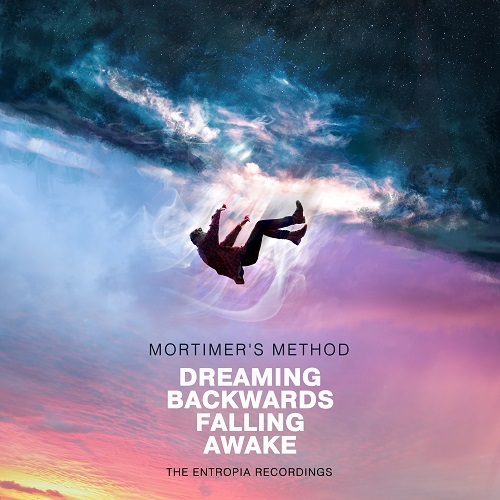 ‘Mage’ joins this pantheon and yet Sharon Ede goes beyond utopian society fiction and casts a much broader net with her new novel. Spanning the continents between Adelaide, Venice and the Arctic, Mage brings together many of the ideas and innovations that Sharon has picked up through her years as an environmental and Post-Growth advocate. It is a ripping epic of a yarn, worthy of comparisons to Dan Brown, Tim Powers or even an episode of Doctor Who.
This episode was recorded, once more, on site at Christie Walk (https://www.urbanecology.org.au/eco-cities/christie-walk/) eco-development in Central Adelaide. In fact, it was recorded on the same evening as my interview with Sue Gilbey and Mark Allen in the previous episode of PGAP! So thank you to Christie Walk for providing the venue and Sue for providing the recording technology. Sue and Mark stayed around for the interview, so on occasion they can be heard in the background during the interview.
It has been a pleasure to spend some time in Adelaide and to interview the post-growth movers and shakers who call this fine part of the world home. So it is with slight sadness on my part that this is not only the penultimate episode of The Adelaide series of interviews, but also the penultimate episode of the second series of PGAP. The second season of PGAP has been an epic travelogue almost worthy of ‘Mage’ including on site interviews from Northern Rivers to Adelaide and just about everywhere in between. It has been an incredible ride and thank you all for listening and travelling with me on this journey of discovery.
** Too much Post-Growth barely enough? Here are some links to further occupy your time. Thank me later!**
A online link to find out more about Mage (and the seal the deal on your own personal copy) can be found here (https://www.magethenovel.com/)
Want to find out more about Sharon and her extensive work outside of writing great fiction? Make a good start here (https://medium.com/@sharonede)
The previous episode of PGAP was also recorded at Christie Walk (link here) (https://pgap.fireside.fm/christiewalk). Sue Gilbey interviewed Sharon for the Adelaide Chronicles podcast (link here) (https://adelaidechronicles.com/mage/)
I mentioned Dr Michelle Maloney and the Earth Ethics conference of 2019. Michelle and her work with Australian Earth Law Alliance (AELA) and New Economy Network Australia (NENA) were interviewed for PGAP here (https://pgap.fireside.fm/4)
Sharon was a founding member of the Post Growth Institute (https://www.postgrowth.org/). PGI's Robert Wanalo was interviewed in PGAP season 1 here (https://pgap.fireside.fm/pgo)
The ABC article I referred to in the intro for this episode was titled "Sustainable development won't solve environmental crises, say these experts. It's simpler than that" (https://www.abc.net.au/news/2021-10-07/the-myth-of-sustainable-development/100504448?fbclid=IwAR03ZNRqZL2YaCwQjsRKiXCqWTC5u60fuco42a2YKT3pMU5k7rjJ8eOZBK8)
Special Guest: Sharon Ede.
‘Mage’ joins this pantheon and yet Sharon Ede goes beyond utopian society fiction and casts a much broader net with her new novel. Spanning the continents between Adelaide, Venice and the Arctic, Mage brings together many of the ideas and innovations that Sharon has picked up through her years as an environmental and Post-Growth advocate. It is a ripping epic of a yarn, worthy of comparisons to Dan Brown, Tim Powers or even an episode of Doctor Who.
This episode was recorded, once more, on site at Christie Walk (https://www.urbanecology.org.au/eco-cities/christie-walk/) eco-development in Central Adelaide. In fact, it was recorded on the same evening as my interview with Sue Gilbey and Mark Allen in the previous episode of PGAP! So thank you to Christie Walk for providing the venue and Sue for providing the recording technology. Sue and Mark stayed around for the interview, so on occasion they can be heard in the background during the interview.
It has been a pleasure to spend some time in Adelaide and to interview the post-growth movers and shakers who call this fine part of the world home. So it is with slight sadness on my part that this is not only the penultimate episode of The Adelaide series of interviews, but also the penultimate episode of the second series of PGAP. The second season of PGAP has been an epic travelogue almost worthy of ‘Mage’ including on site interviews from Northern Rivers to Adelaide and just about everywhere in between. It has been an incredible ride and thank you all for listening and travelling with me on this journey of discovery.
** Too much Post-Growth barely enough? Here are some links to further occupy your time. Thank me later!**
A online link to find out more about Mage (and the seal the deal on your own personal copy) can be found here (https://www.magethenovel.com/)
Want to find out more about Sharon and her extensive work outside of writing great fiction? Make a good start here (https://medium.com/@sharonede)
The previous episode of PGAP was also recorded at Christie Walk (link here) (https://pgap.fireside.fm/christiewalk). Sue Gilbey interviewed Sharon for the Adelaide Chronicles podcast (link here) (https://adelaidechronicles.com/mage/)
I mentioned Dr Michelle Maloney and the Earth Ethics conference of 2019. Michelle and her work with Australian Earth Law Alliance (AELA) and New Economy Network Australia (NENA) were interviewed for PGAP here (https://pgap.fireside.fm/4)
Sharon was a founding member of the Post Growth Institute (https://www.postgrowth.org/). PGI's Robert Wanalo was interviewed in PGAP season 1 here (https://pgap.fireside.fm/pgo)
The ABC article I referred to in the intro for this episode was titled "Sustainable development won't solve environmental crises, say these experts. It's simpler than that" (https://www.abc.net.au/news/2021-10-07/the-myth-of-sustainable-development/100504448?fbclid=IwAR03ZNRqZL2YaCwQjsRKiXCqWTC5u60fuco42a2YKT3pMU5k7rjJ8eOZBK8)
Special Guest: Sharon Ede.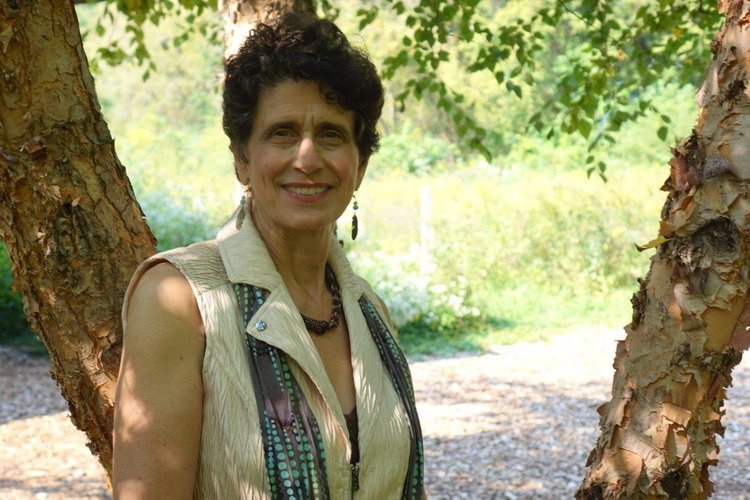 Karen Shragg member of the advisory board of the non-profit “World Population Balance (https://www.worldpopulationbalance.org/)”, and “Earth Overshoot”. I remember being first impressed by Karen’s public speaking when she spoke at the COP25 Madrid panel on Overpopulation and Climate Change (https://www.youtube.com/watch?v=ZPMy2Yw8teM&t=2s), along with Portugal’s João Abegão, who I have also interviewed on a season 1 episode of PGAP. (https://pgap.fireside.fm/wpdpartb) Karen’s capacity to speak to the facts in a colourful, personable and emotional way was on full display at the COP25 panel and also very reflective on the way she writes on environmental issues. That the YouTube video (https://www.youtube.com/watch?v=ZPMy2Yw8teM&t=2s) has nearly 18 000 views is a testament.
Karen is a stellar communicator for Children and Adults alike. This is evident in the children’s series of books that she co-wrote, ‘Nature’s Yucky’. It is also evident in her fantastic book ‘Move Upstream: A Call To Solve Overpopulation' (https://www.movingupstream.com/publications) and her poignant ‘Move Upstream’ (https://www.movingupstream.com/blog) blog. However, it is Karen’s latest publication ‘Change our Stories, Change Our World’ which if the focus of this episode of PGAP.
Karen Shragg member of the advisory board of the non-profit “World Population Balance (https://www.worldpopulationbalance.org/)”, and “Earth Overshoot”. I remember being first impressed by Karen’s public speaking when she spoke at the COP25 Madrid panel on Overpopulation and Climate Change (https://www.youtube.com/watch?v=ZPMy2Yw8teM&t=2s), along with Portugal’s João Abegão, who I have also interviewed on a season 1 episode of PGAP. (https://pgap.fireside.fm/wpdpartb) Karen’s capacity to speak to the facts in a colourful, personable and emotional way was on full display at the COP25 panel and also very reflective on the way she writes on environmental issues. That the YouTube video (https://www.youtube.com/watch?v=ZPMy2Yw8teM&t=2s) has nearly 18 000 views is a testament.
Karen is a stellar communicator for Children and Adults alike. This is evident in the children’s series of books that she co-wrote, ‘Nature’s Yucky’. It is also evident in her fantastic book ‘Move Upstream: A Call To Solve Overpopulation' (https://www.movingupstream.com/publications) and her poignant ‘Move Upstream’ (https://www.movingupstream.com/blog) blog. However, it is Karen’s latest publication ‘Change our Stories, Change Our World’ which if the focus of this episode of PGAP.
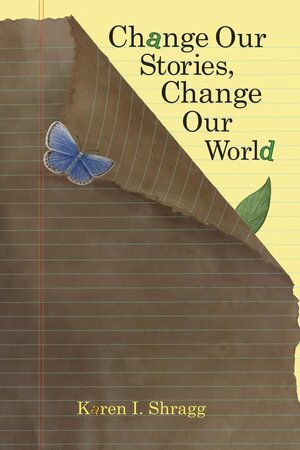 A short concise and very manageable book at around 80 pages, ‘Change our Stories, Change Our World (https://www.amazon.com/Change-Our-Stories-World/dp/098849387X)’ nevertheless manages to cover much stomping ground, challenging six sticky world views that most of us in society hold, which Karen believes hold the stories which we use to justify business as usual human expansion at the expense of the natural world. My aim was to structure the interview around asking Karen a question around each of the chapter topics. Which I sort of managed to do so despite my usual tangents and distractions. Karen makes this a very engaging and dynamic conversation and I hope you enjoy!
The issue of population has again become topical in Australia, as the mainstream media has reported that the country's population has been shrinking since the COVID induced closure of our borders. This is not entirely true - we've had a quarterly decline, but a modest annual increase of population growth. This is, however, much lower than in previous years and has resulted in panic and calls to return to normal ASAP from many in the economic, big business and demographic communities. Well known demographer Dr Liz Allen, for example, was recently interviewed on the ABC to advocate for a return to previous levels of economic migration to avoid apparent economic and demographic disasters. This time, however, Sustainable Population Australia - who kindly support this podcast - were invited to speak on ABC Radio Sydney (https://www.abc.net.au/radio/sydney/programs/afternoons/population/13276994) to provide a counterview to these concerns. For anyone concerned about Australia’s population growth OR about alternatives to growth as usual, hopefully this is a promising sign for many more future on-air discussions.
A short concise and very manageable book at around 80 pages, ‘Change our Stories, Change Our World (https://www.amazon.com/Change-Our-Stories-World/dp/098849387X)’ nevertheless manages to cover much stomping ground, challenging six sticky world views that most of us in society hold, which Karen believes hold the stories which we use to justify business as usual human expansion at the expense of the natural world. My aim was to structure the interview around asking Karen a question around each of the chapter topics. Which I sort of managed to do so despite my usual tangents and distractions. Karen makes this a very engaging and dynamic conversation and I hope you enjoy!
The issue of population has again become topical in Australia, as the mainstream media has reported that the country's population has been shrinking since the COVID induced closure of our borders. This is not entirely true - we've had a quarterly decline, but a modest annual increase of population growth. This is, however, much lower than in previous years and has resulted in panic and calls to return to normal ASAP from many in the economic, big business and demographic communities. Well known demographer Dr Liz Allen, for example, was recently interviewed on the ABC to advocate for a return to previous levels of economic migration to avoid apparent economic and demographic disasters. This time, however, Sustainable Population Australia - who kindly support this podcast - were invited to speak on ABC Radio Sydney (https://www.abc.net.au/radio/sydney/programs/afternoons/population/13276994) to provide a counterview to these concerns. For anyone concerned about Australia’s population growth OR about alternatives to growth as usual, hopefully this is a promising sign for many more future on-air discussions.
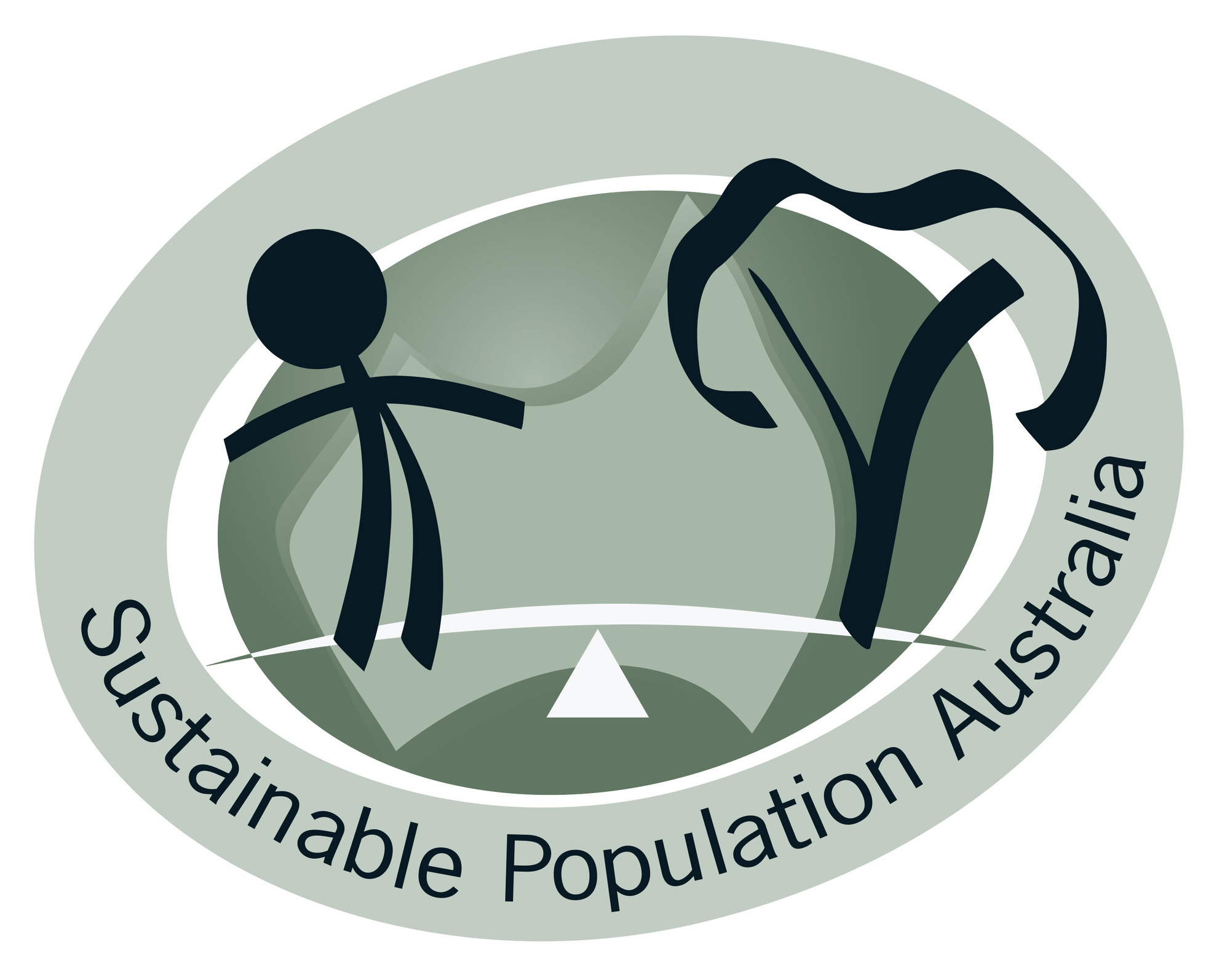 More information regarding the interview can be found on the SPA website here (https://population.org.au/abc-radio-march2021/) along with a recent media release from SPA that can be found here (https://population.org.au/media-releases/slowdown28march/).
But enough about us. Want to find out more about Karen Shragg?
Click here (https://www.movingupstream.com/) for her website 'Moving Upstream'. There you can find her bio, blog, bibliography, and anything else starting with the letter B!
She had an opinion piece recently published in the Boston Herald: 'Immigration growth is an environmental issue' (https://www.bostonherald.com/2021/03/25/shragg-immigration-growth-is-an-environmental-issue/)
If you haven't had enough of Karen's dulcet tones on podcast form, her interview with Rewilding Earth (https://podcasts.apple.com/gb/podcast/episode-54-karen-shragg-on-having-upstream-conversations/id1434744385?i=1000485374817) is excellent.
I've already linked it, but I just think the whole Cop25 Madrid pane (https://www.youtube.com/watch?v=ZPMy2Yw8teM&t=2s)l where Karen spoke is just the bee's knees.
Finally, did you forget to buy her new book ‘Change our Stories, Change Our World’? Shame on you! Fix this right now by following this link to Amazon (https://www.amazon.com/Change-Our-Stories-World/dp/098849387X) (never thought I'd be plugging Amazon but we live in strange times!)
Special Guest: Karen Shragg.
More information regarding the interview can be found on the SPA website here (https://population.org.au/abc-radio-march2021/) along with a recent media release from SPA that can be found here (https://population.org.au/media-releases/slowdown28march/).
But enough about us. Want to find out more about Karen Shragg?
Click here (https://www.movingupstream.com/) for her website 'Moving Upstream'. There you can find her bio, blog, bibliography, and anything else starting with the letter B!
She had an opinion piece recently published in the Boston Herald: 'Immigration growth is an environmental issue' (https://www.bostonherald.com/2021/03/25/shragg-immigration-growth-is-an-environmental-issue/)
If you haven't had enough of Karen's dulcet tones on podcast form, her interview with Rewilding Earth (https://podcasts.apple.com/gb/podcast/episode-54-karen-shragg-on-having-upstream-conversations/id1434744385?i=1000485374817) is excellent.
I've already linked it, but I just think the whole Cop25 Madrid pane (https://www.youtube.com/watch?v=ZPMy2Yw8teM&t=2s)l where Karen spoke is just the bee's knees.
Finally, did you forget to buy her new book ‘Change our Stories, Change Our World’? Shame on you! Fix this right now by following this link to Amazon (https://www.amazon.com/Change-Our-Stories-World/dp/098849387X) (never thought I'd be plugging Amazon but we live in strange times!)
Special Guest: Karen Shragg.


